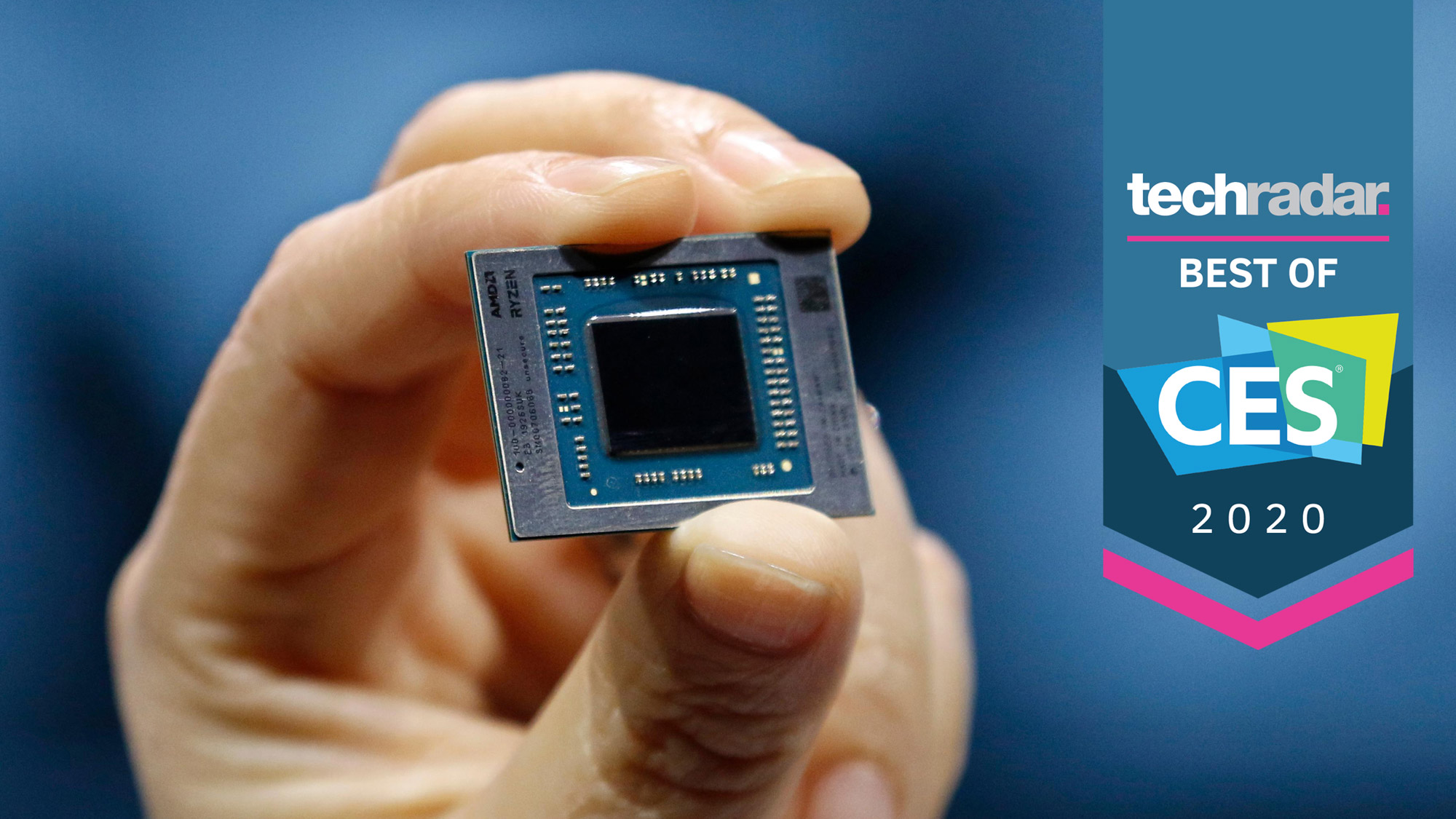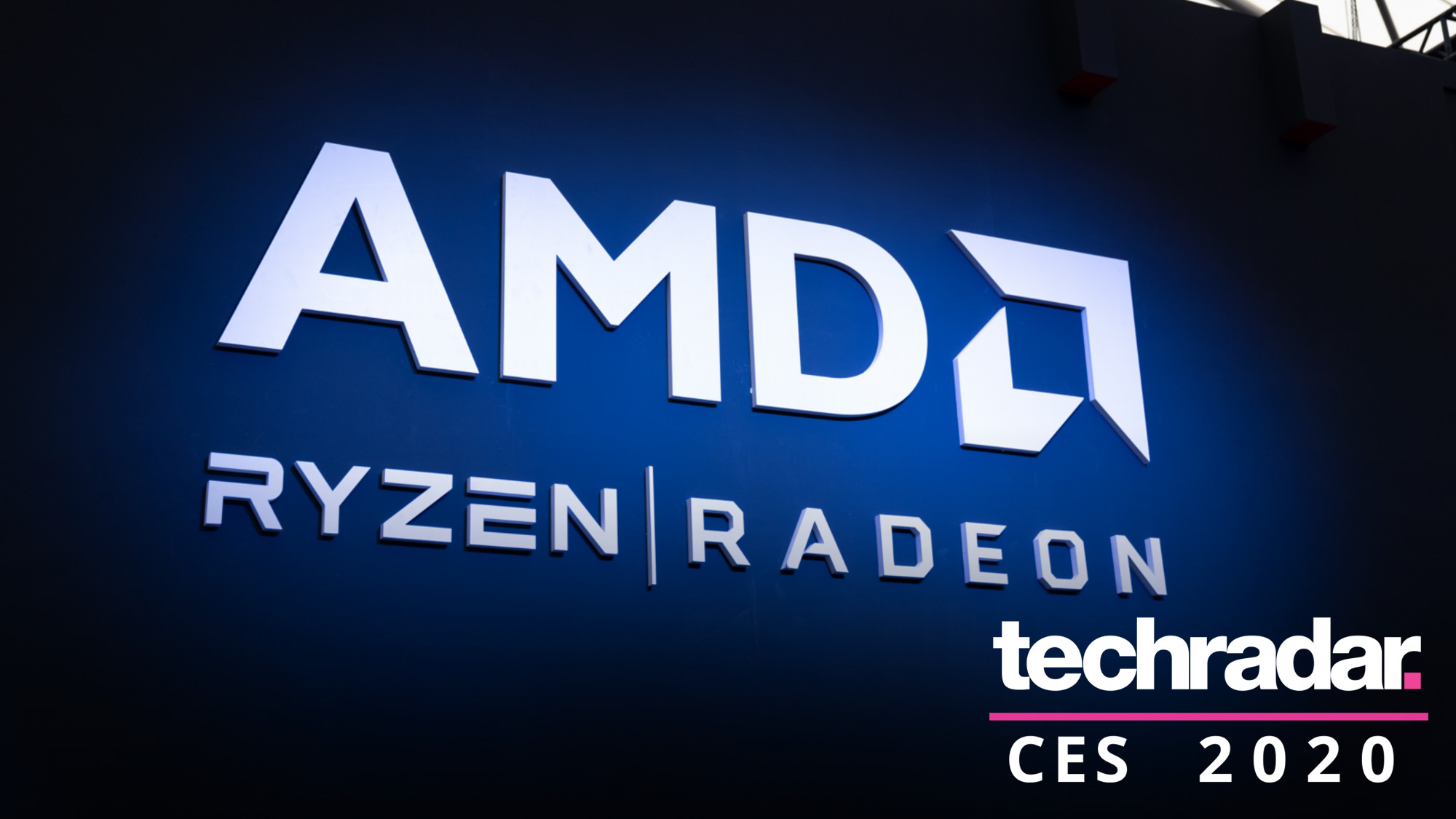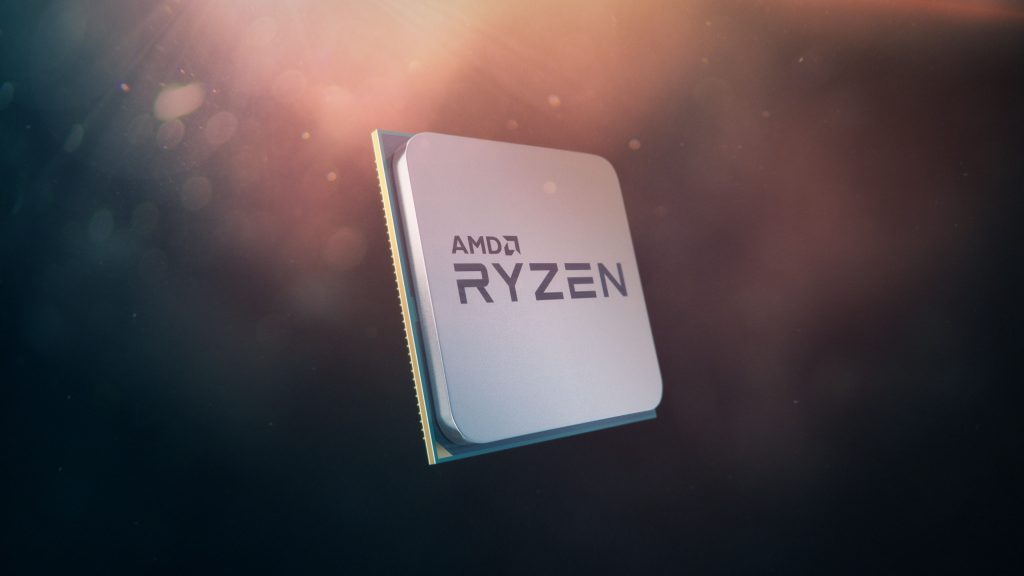The AMD Ryzen 4000 processors for laptops are out in the world after their unveiling at CES 2020. And, these mobile processors are already changing the gaming laptop scene forever, offering performance that’s nearly as fast as their desktop counterparts. Thanks to compelling laptop releases like the Asus Zephyrus G14, these chips are proving that they can deliver desktop-class power and hugely improved performance across the board.
That’s only the tip of the AMD Ryzen 4000 iceberg. AMD is preparing to add a new flagship APU, Ryzen 9 4900U to the lineup, and there have been plenty of whispers about the AMD Zen 3-equipped Ryzen 4000 processors for desktops, which could be coming in October. In fact, AMD CFO Devinder Kumar confirmed recently the manufacturer is "on track to launch our next-generation Zen 3 CPUs and RDNA 2 GPUs in late 2020".
Based on a 7nm+ manufacturing process, these could potentially push clock speeds high enough to really make Intel hurt, especially if Team Blue stays stuck at 14nm on desktop. AMD also confirmed that these processors will officially support X570 and B550 motherboards. This means that although Team Red is already sitting on top of the CPU world right now, selling 40% more processors than its rival, it’s going for the knockout.
Although it’s also entirely possible that rather than pushing its Ryzen 4000 lineup to compete with the top-end Comet Lake chips, AMD could roll out a couple of budget-friendly Ryzen 3000 processors.
Still, there’s really no stopping AMD Ryzen 4000 from demolishing Intel. And, with so much information and gossip regarding the next generation of Ryzen for laptops and desktops already out there, we gathered all the most important bits right here to help you stay ahead of the Ryzen 4000 curve. Be sure to bookmark this article and keep checking in, as we’ll update it with all the latest news that comes our way.
Cut to the chase
- What is it? AMD's next lineup of processors for laptop and desktop
- When is it out? Laptops are out, desktop to come out in “late 2020”
- What will it cost? TBA

AMD Ryzen 4000 release date
Right out of the gate, the next-generation of Ryzen processors for desktop haven’t seen an official release date. We know that Lisa Su said AMD Ryzen 4000 for desktop will be coming in 2020. And, a new rumor suggests that they are set to go on sale in October 2020, alongside the RDNA 2 graphics cards.
Last year, AMD took its Ryzen 3rd Generation processors to Computex 2019 for a preview, and announced more details later at E3 2019. Back at CES 2019, AMD announced Zen 2, the microarchitecture that would later be behind Ryzen 3rd Generation, Threadripper 3rd Generation and Epyc 2nd generation. We expected Team Red to follow suit by announcing Zen 3 with some vague details at CES 2020, but that didn't happen.
While E3 2020 has been cancelled, Computex 2020 has simply gotten a later date: September 28-30, 2020. If all goes well, we could see AMD giving us a sneak peek at the desktop chips at the conference, like last year, before rolling them out in October. AMD CFO Devinder Kumar even reinforced this rumored release window, saying that AMD is "on track to launch our next-generation Zen 3 CPUs and RDNA 2 GPUs in late 2020".
We did get something at CES 2020, at least, when AMD CEO Lisa Su unveiled the AMD Ryzen 4000 processors for laptops. Prior to their release, the much-anticipated 7nm mobile processors have since shown up in product listings on Amazon for multiple Asus gaming laptops in China and Canada.
Now, these chips are out in the wild and ready to power a new generation of thin and light laptops that boast incredible performance and impressively long battery life. The newly-released Asus Zephyrus G14 is leading that charge. We should start seeing more laptops rocking AMD Ryzen 4000 processors by the end of Q2 2020 across both ultraportables and gaming laptops.

AMD Ryzen 4000 Price
As far as the laptop chips, the prices of the processors themselves are not relevant to most people, as laptop manufacturers will absorb the price and repackage them. Still, we will probably see prices increase over last-generation AMD laptops, due to the fact that AMD's processors will be behind flagship-class laptops like the upcoming Lenovo Yoga Slim 7.
We'll probably see Ryzen 3 laptops starting around the $600 mark, with laptops rocking the Ryzen 7 4800H or 4800U hitting the premium market above $1,000. However, we can be a bit more specific with our speculation on the desktop lineup.
AMD Ryzen 3rd Generation saw higher prices than Ryzen 2000, largely due to the introduction of Ryzen 9 processors with up to 16 cores. However, the Ryzen 7 3700X did launch at the same $329 (£319, AU$519) price point as the Ryzen 7 2700X that came before it.
Due to the success of chips like the Ryzen 9 3900X and 3950X, however, we fully expect AMD to follow suit with the Ryzen 4000 lineup. For reference, we included the pricing of AMD Ryzen 3000 processors below. We expect the pricing to stay roughly the same for the next generation.
- AMD Ryzen 9 3950X: $749 (about £590, AU$1,080)
- AMD Ryzen 9 3900X: $499 (about £390, AU$720)
- AMD Ryzen 7 3800X: $399 (about £310, AU$580)
- AMD Ryzen 7 3700X: $329 (about £260, AU$480)
- AMD Ryzen 5 3600X: $249 (about £200, AU$360)
- AMD Ryzen 5 3600: $199 (about £160, AU$290)
- AMD Ryzen 5 3400G: $149 (£139, AU$240)
- AMD Ryzen 3 3300G: $99 (£94, AU$144)

AMD Ryzen 4000 Specs
Right now we know the most about the AMD Ryzen 4000 mobile lineup, so that's where we're going to start. These will be the first 7nm processors to make their way to laptops, and with that they bring some huge benefits.
The biggest of these is, just like Ryzen 3000 desktop before it, core counts. Even with ultraportable laptops, which have previously been limited to 4 core/8 thread configurations, you're getting 8 cores and 16 threads.
This is a huge improvement, and even though clock speeds are limited to 4.2GHz - or a bit higher with 25W configurations – users should see massive gains in productivity workloads. If recent leaks are any indication, AMD Ryzen 4000 mobile chips really won't be much slower than the desktop processors.
However, what's odd is that only every other SKU has hyperthreading. For example, the AMD Ryzen 7 4700U has 8 cores and 8 threads, whereas the 4800U has 8 cores and 16 threads. Both of the announced H-Series chips for mobile have hyper-threading however, along with higher base clock speeds.
One of the key features of this AMD Ryzen 4000 series for laptops is going to be the integrated graphics performance. Now, we haven't had a chance to test this yet, of course, but AMD is promising a boost of up to 28% over Intel's Ice Lake when it comes to graphics performance. These chips will not be in gaming laptops, however, but when you just want to get in a quick Overwatch match on your lunch break, it will make a major difference.
We went ahead and listed the core specs of each of the laptop processors.
- AMD Ryzen 7 4800U: 8 cores, 16 threads | 1.8GHz base, 4.2GHz boost | 12MB cache
- AMD Ryzen 7 4700U: 8 cores, 8 threads | 2.0GHz base, 4.1GHz boost | 12MB cache
- AMD Ryzen 5 4600U: 6 cores, 12 threads | 2.1GHz base, 4.0GHz boost | 11MB cache
- AMD Ryzen 5 4500U: 6 cores, 6 threads | 2.3GHz base, 4.0GHz boost | 11MB cache
- AMD Ryzen 3 4300U: 4 cores, 4 threads | 2.7GHz base, 3.7GHz boost | 6MB cache
- AMD Ryzen 7 4800H: 8 cores, 16 threads | 2.9GHz base, 4.2GHz boost | 12MB cache
- AMD Ryzen 5 4600H: 6 cores, 12 threads | 3.0GHz base, 4.0GHz boost | 11MB cache
We know far less about desktop, however. Beyond the fact we know it'll be revealed in 2020, Zen 3 is largely an enigma wrapped in mystery. It will be based on a refinement of the 7nm process found in Zen 2, but any more specific information is purely in the realm of rumor.
Benchmarks for a desktop-based variant have shown up online recently, but that chip is a Zen 2-based Renoir APU. That means that it won’t deliver the same level of performance as the high-end SKUs.
There are rumors that it will be based on TSMC's new 7nm EUV (extreme ultraviolet) process, similar to what's rumored to be seen with Nvidia Ampere. If this is true, the processors could be much more power efficient, which could see clock speeds see a sizable bump - which could seriously threaten Intel's chips in the gaming scene.
Another thing that could make Intel start sweating is the rumor that with Ryzen 4000, AMD may introduce more powerful hyperthreading, with each physical core having four simultaneous processing threads, as opposed to the two found on today's silicon. This is a rumor we'd definitely take with a grain of salt, but if it's true it could even further widen the gap between AMD and Intel when it comes to multi-threaded workloads.
It's unlikely that we'll see huge core count bumps with this generation, like we did last year. Instead, AMD will probably use the EUV process to boost performance while cutting power consumption. This does mean that there likely won't be much of a reason to upgrade if you already have a Ryzen 3000 chip.
Still, we won't know what AMD Ryzen 4th Generation processors will look like until we see them announced by Team Red. We'll be sure to update this article as soon as we hear more about AMD's next desktop chips and once we've been able to actually test the laptop models.
- We'll show you how to build a PC
from TechRadar: computing components news https://ift.tt/2ubztJh
via IFTTT
No comments:
Post a Comment